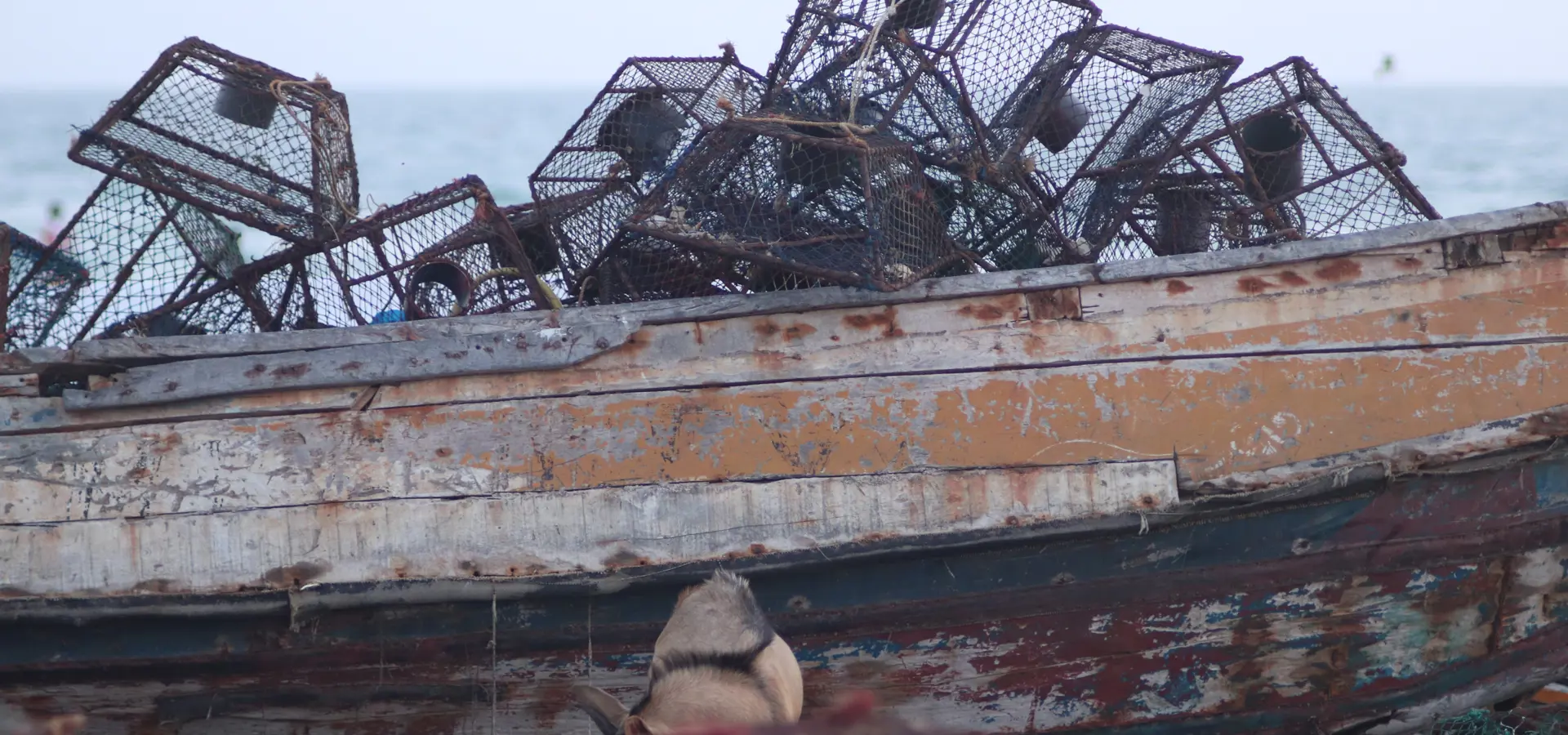Location successfully changed to English (Global)
- Select a region
- English (Global)
- English (Asia)
- English (USA)
- 中文
- Deutsch
- Español
- Français
- 日本語
- Polski



ClientEarth and Oceana are taking legal action against the Spanish government for failing to investigate and - where appropriate - sanction Spanish vessels for switching off their Automatic Identification System (AIS) for significant periods of time and for not effectively monitoring Spanish companies’ fishing operations in West Africa.
One third of all catches in the world come from Western African waters, where it is estimated that 73% of vessels fishing there are of foreign origin - and there are concerns that a lack of control at sea and in ports is enabling illegal fishing.
With local fish stocks dwindling, local communities in the region are facing disastrous consequences, including risks to food security, job loss and forced migration.
In 2023, ClientEarth and Oceana submitted an administrative procedure to the Spanish authorities to encourage them to investigate further Global Fishing Watch findings showing several Spanish-flagged vessels operating in Senegal and Guinea Bissau switching off their AIS for significant periods of time – sometimes for more than a year.
AIS is a mandatory tracking device for all EU fishing vessels over 15 meters in length which automatically and publicly transmits a vessel’s identity, speed and GPS location. Switching off this device allows vessels to escape public scrutiny – in breach of the law.
ClientEarth lawyer Nils Courcy said:
"What puzzles us is why these boats switch off their public identification signals, going 'dark' for such long periods. This lack of transparency could be linked to fraud. We've asked the Spanish authorities to investigate these vessels further, but they've refused to do so. We are now going to court to demand that they comply with their legal obligations.”
Spanish authorities also claim they lack the jurisdiction to investigate and sanction Spanish citizens and companies potentially involved in illegal fishing outside EU waters, unless they are registered on illegal fishing vessel lists. This legal loophole allows Spanish companies operating vessels which are stateless, or which fish under African flags outside the oversight of international organisations, to evade scrutiny.
Senior Policy Advisor at Oceana in Europe, Ignacio Fresco Vanzini, said:
“EU law explicitly prohibits its citizens and companies from engaging or supporting illegal fishing anywhere in the world. If they do, Member States must identify and sanction them, regardless of whether these vessels are part of official blacklists. Spanish legislation must close existing loopholes to ensure that companies profiting from illegal fishing in other parts of the world can be held accountable.”
The rising risk of illegal fishing in the region was acknowledged by the EU itself – which issued Senegal with a ‘yellow card’ in May 2024, showing serious concerns about the country’s ability to prevent illegal fishing. But it is not only Senegal's duty to prevent this from happening. EU Member States also have a legal obligation to oversee their fleets and operators fishing in third country waters.
The lack of checks is all the more concerning since numerous other foreign fleets and companies are active in these waters with minimal monitoring, both at sea and in ports - considerably impacting local fish stocks.
Foreign-owned industrial vessels can scoop up in one day the same amount as hundreds of traditional canoes and are often competing with artisanal fishers due to the declining amount of fish available. This is affecting coastal communities.
Overfishing and the depletion of fish stocks have also been linked to increased migration from West African countries, particularly Senegal, as declining catches push artisanal fishers and coastal communities into economic hardship, forcing many to seek alternative livelihoods - including migration to Europe via dangerous sea routes. The failure to enforce fishing regulations not only harms marine biodiversity but also has serious humanitarian consequences.
Photo credit: Hamedine Kane